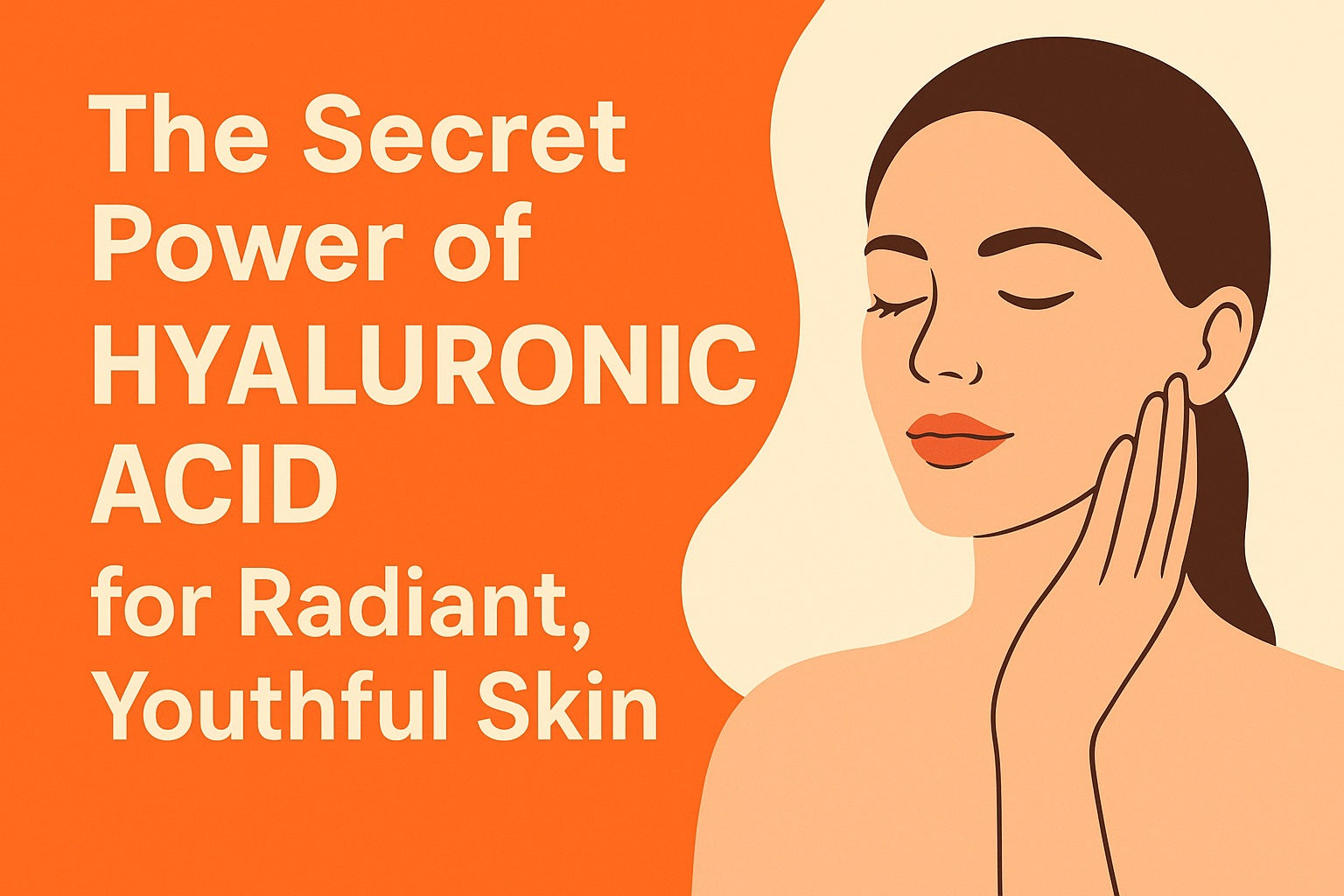When it comes to glowing, hydrated, youthful skin, one superstar ingredient stands above the rest: hyaluronic acid. You’ve probably seen it in serums, creams, and even supplements—but what exactly makes this natural compound so powerful for skin health? Let’s dive deep into the science and uncover why hyaluronic acid is often called the “fountain of youth molecule.”
What Is Hyaluronic Acid?
Hyaluronic acid (HA) is a naturally occurring substance found in your skin, eyes, and connective tissue. Its primary job? To retain moisture. In fact, just one gram of hyaluronic acid can hold up to six liters of water—making it one of the most effective natural hydrators in the world.
But here’s the kicker: as we age, our body’s natural production of HA declines, which leads to dry, sagging skin, fine lines, and loss of elasticity. Supporting your body’s natural HA levels can make a visible difference in skin health and overall vitality.
Hyaluronic Acid and Skin Hydration
Think of hyaluronic acid as a sponge for your skin cells. It attracts and locks in water, keeping your skin smooth, plump, and radiant. When skin cells are properly hydrated:
-
Wrinkles appear softer and less noticeable
-
Elasticity improves, making skin bounce back easier
-
That coveted “glow” becomes naturally visible
👉 This is why so many beauty-from-within formulas combine HA with collagen and biotin, giving your skin both structure and hydration. (Check out our guide on The Beauty-From-Within Formula: Collagen, Biotin, Cordyceps & Hyaluronic Acid to see how they work together.
Beyond Beauty: Hyaluronic Acid for Healthy Aging
While most people know HA for its skin benefits, it plays a much bigger role in overall health:
Joint health
It cushions and lubricates your joints, supporting mobility and flexibility.
Eye health
It keeps your eyes moist and comfortable.
Wound healing
HA helps repair skin tissue faster after minor damage or sun exposure.
According to research from the National Institutes of Health (NIH), hyaluronic acid also protects cells from oxidative stress—the free radical damage that accelerates skin aging.
Hyaluronic Acid vs. Collagen – Why You Need Both
Collagen provides the structure of your skin, while hyaluronic acid supplies the hydration. Without collagen, your skin loses firmness. Without HA, it loses moisture. Together, they are a power duo for youthful skin similar to what we have.
Want to know how collagen peptides boost skin elasticity and nail strength? Read our post: Multivitamins for Women – What to Look For and Why It Matters.
Natural Ways to Boost Hyaluronic Acid
Here are some natural ways to increase HA levels in your body:
Eat more HA-rich foods
Such as bone broth, soy-based foods, and leafy greens.
Take supplements that combine collagen, HA, and vitamin C
This combination maximizes absorption and results.
Protect your skin from UV rays
Sun damage accelerates HA breakdown, so daily sunscreen is key.
Stay hydrated
Drinking enough water ensures HA has what it needs to work.
The Takeaway
Hyaluronic acid isn’t just another beauty buzzword—it’s a scientifically backed ingredient that supports skin hydration, smoothness, and elasticity, while also playing a vital role in joint and eye health. Whether through your diet, supplements, or skincare, boosting your HA levels is one of the smartest moves you can make for healthy aging and radiant skin.
For more skin and wellness insights, explore these popular reads:
The Essential Guide to Women’s Health: How Supplements Can Transform Your Daily Wellness
How Daily Multivitamins Boost Women’s Energy & Immunity


0 comments